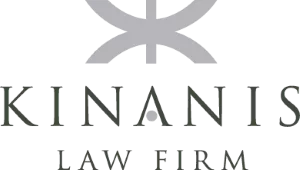- within Criminal Law topic(s)
A. INTRODUCTION
With this publication we outline the main provisions of the Taxation Laws in relation to the tax treatment of interest income and interest expense and we elaborate on the various financing schemes available.
B. THE BASIS OF TAXATION OF INTEREST INCOME
Generally, the Taxation Laws in Cyprus are applicable only to tax residents of Cyprus, both individuals and companies, on their world-wide income.
(I) Definition of tax resident
- In the case of an individual – means an individual who stays in Cyprus for one or more periods exceeding, in aggregate 183 days in the year of assessment.
- In the case of a company – means a company whose "management and control" is exercised in Cyprus.
The management and control of a company is exercised by its board of directors. The nationality or the residence of the shareholders is irrelevant. It is also irrelevant where the company was registered, whether in Cyprus or abroad. Incorporation in Cyprus is not sufficient to qualify the company as a tax resident of Cyprus. There is no definition in the Law as to the meaning of "management and control".
The main factors that will identify this issue are: -
- The place of directors' meetings. Where board decisions are taken. This factor is treated as being the most crucial;
- The residence of the directors or at least the majority of them;
- The degree of control exercised by the directors on company decisions;
- Whether the directors think and decide on the crucial management decisions affecting the business of the company or they simply follow instructions and rubber stamp;
- Where the general policy of the company is formulated and by whom.
Non-residents of Cyprus are not taxable in Cyprus. Despite this general rule, non - residents having income from within Cyprus (Cyprus source income) i.e., through a permanent establishment are taxable in Cyprus only as to this Cyprus source income.
For a detailed analysis as to the applicability of the taxation laws, kindly see our publication "The Management and Control Test – Taxation of Cyprus and Foreign Companies" as well as our publication "Immigration and Retirement in Cyprus – The Tax Aspect".
(II) Taxation of Interest Income
Taxation on interest income is imposed according to: -
- The "Income Tax Law''; or
- The "Special Defence Contribution for the Republic Law''.
The applicability of each of the above laws (herein referred to as the "Law") depends on the type of interest income a person will acquire which is divided into two main categories: -
- Interest income acquired from the ordinary
activities of the business or closely connected
with those activities.
- In this case the interest is treated as active interest and is regarded as trading income and taxed according to Income Tax Law at the rate of 12.5% on any resulting net taxable profits, and
- Interest income not acquired from the
ordinary activities of the business or closely connected with those
activities.
- In this case the interest is considered as passive interest and is taxed under Special Defense Contribution Tax at the rate of 30% on the interest income accrued or credited.
(III) Interpretation of "ordinary activities" and "activities closely connected with ordinary activities"
As the definition of what is regarded as "ordinary activities" or activities closely connected with ordinary activities" is not clearly identified in the Law, The Commissioner of Income Tax, has interpreted the above provisions of the Law in a separate circular as follows: -
1. Interest that is acquired "from the ordinary activities of the business": -
This type of interest is considered to be: -
a) The interest of banking businesses.
This category includes all the banks, co-operative credit institutions and enterprises that have as their main purpose the granting of loans such as the Housing Finance Corporation.
b) The interest that is acquired by financing companies.
These are the companies which provide finance by the method of hire - purchase or leasing agreements or any other type of financing.
In effect, the interest that the banks and financial institutions or financing companies receive or credited, is considered as trading income and is NOT liable to Special Defence Contribution Tax but only liable to Income Tax at 12.5% on any resulting net profits.
2. Interest that is acquired from "activities closely connected with the ordinary activities of the business":-
This type of interest is considered to be:-
a) The interest received or credited from trade debtors:
For example, the interest received or credited by companies or individuals when their normal business activity is the buying, selling or development of immovable property, or the interest received or credited by companies or individuals that are selling or re-selling cars or other vehicles or machinery or other products.
In effect, the interest that companies or individuals receive or credited from their ordinary trading activities with their debtors is considered as interest closely connected with the ordinary activities of the business and is not subject to Special Defence Contribution Tax but only to Income Tax.
b) Interest on current accounts
The interest that companies or individuals receive from banks in their commercial banking accounts (current accounts) used for their ordinary trading activities.
c) The interest of Insurance Companies;
d) The interest that companies receive or credited when they act as the vehicle through which the companies of the group are financed.
In effect, companies which are used as a financing vehicle of their group, i.e. financing a mother, subsidiary or other related company (associate), then the interest received or credited is considered as trading income and is not subject to Special Defence Contribution Tax, but only subject to Income Tax at a rate of 12.5% on any resulting net profits.
The meaning of "group companies"
The meaning of group of companies is defined in the Companies' Law Cap. 113, where according to Art. 2 of this law, "group of companies" means the whole body of companies which consists of the mother and its subsidiary or its subsidiaries.
Further, according to Art.148 of the Companies' Law Cap. 113, the meaning of subsidiary and holding companies is defined as follows:-
A company is deemed to be a subsidiary of another if, but only if,
- that either –
- is a member of it and controls the composition of its board of directors; or
- holds the majority of the voting shares (rights) ; or
- is its member and controls the majority of the voting shares (rights) by agreement which has been signed with other members.
- the first mentioned company is a subsidiary of any company which is that other's subsidiary.
A company controls the composition of the board of directors if, but only if, that other company can appoint or remove the holders of all or the majority of the directorships without the consent or concurrence of any other person.
For the purposes of the Companies Law, a company shall be deemed to be another's holding company if, but only if, that other is its subsidiary.
Further, according to International Financial Reporting Standards applicable in tax audit matters, an associate is an enterprise in which the investor has significant influence and which is neither a subsidiary nor a joint venture of the investor.
Significant influence is defined as the power to participate in the financial and operating policy decisions of the investee but without being able to exercise control over those policies. If an investor holds, directly or indirectly through subsidiaries, 20% or more of the voting power of the investee, it is presumed that the investor does have significant influence, unless it can be clearly demonstrated that this is not the case. Conversely, if the investor holds, directly or indirectly through subsidiaries, less than 20% of the voting power of the investee, it is presumed that the investor does not have significant influence, unless such influence can be clearly demonstrated. A substantial or majority ownership by another investor does not necessary preclude an investor from having significant influence.
The commissioner of Income Tax considers within the definition of a "group of companies", any parent or subsidiary company as specified in the Law as well as any associate company (holding more than 20% of the voting shares).
In view of the above, full disclosure as to the group structure will need to be provided to the company's auditors in order to be able to assess the correct tax treatment of the interest income.
3. Interest received or credited liable to Special Defence Contribution Tax
Examples of interest liable to Special Defence Contribution Tax: -
- Interest received by the resident company/individual from fixed deposit accounts and bonds that are not held as a trading activity;
- Interest received or expected to be received from loans granted by companies that do not qualify as an ordinary activity or an activity closely connected with the company's ordinary activities.
Click here to continue reading ...
The content of this article is intended to provide a general guide to the subject matter. Specialist advice should be sought about your specific circumstances.



